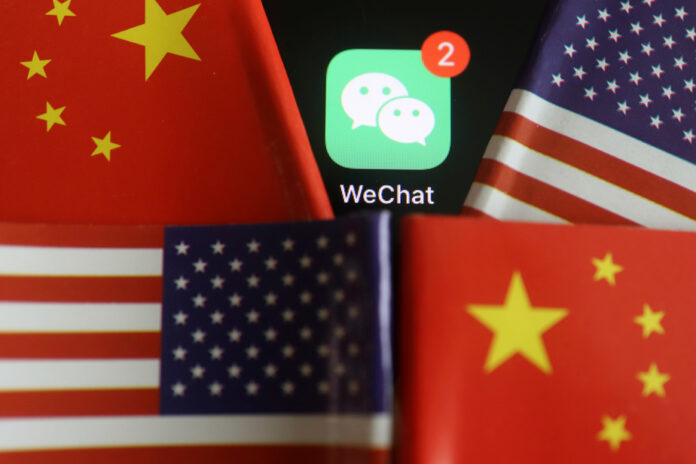(Shanghai) The restrictions put in place by the American authorities on semiconductor exports are undermining the ambitions of major Chinese technological players in artificial intelligence, according to sector specialists.
Chinese e-commerce giant Alibaba was the latest to have to adjust its plans, highlighting on Thursday its difficulties in terms of supplying electronic chips.
The Hangzhou-based group, a key player in the digital economy, announced that it was canceling for the time being a plan to split its cloud (computer network) business into a separate entity, citing the “recent strengthening of American restrictions on export of advanced computer chips”. Alibaba indicated in March that it intended to split the company into six entities, including one for its cloud activities.
Alibaba also warned that US restrictions will limit its ability to upgrade its technologies in the future. In response, its stock price fell nearly 10% on Friday on the Hong Kong Stock Exchange.
“What this episode means is that American restrictions on the supply of chips to Chinese technology companies will have the potential to disrupt major entrepreneurial decisions,” Ni Tao, founder of the Chinese technology platform, commented to AFP. robotics cnrobopedia.com.
Tencent, Chinese video games giant and owner of the WeChat application (messaging, payment, social network), also indicated this week that its abilities to provide cloud services were suffering from the restrictions put in place by Washington.
Although it has one of the largest stocks of chips suitable for artificial intelligence in China, Tencent will have to look for other sources of supply.
The United States has been trying for months to limit Chinese companies’ access to cutting-edge technologies, with restrictions on the export of semiconductors and machines used to manufacture them to Asian giants.
For the American administration, it is a question of preventing their use by China for military purposes and responding to threats posed to “national security”.
The export of the most efficient chips, in particular those used for the development of artificial intelligence, is subject to the granting of a license by the American authorities.
Restrictions were further tightened on October 17, with controls extended to dozens of countries with commercial ties to China.
For its part, Beijing refutes the allegations made by the American authorities. President Xi Jinping said during his meeting with US President Joe Biden a few days ago that such actions “seriously harm China’s legitimate interests.”
These restrictions undermine the ambitions of many companies, which counted on a constant supply of powerful imported chips to train their artificial intelligence models.
“The United States is sending a clear signal to cutting-edge chip developers around the world: don’t even bother […] developing a high-performance computing chip for the Chinese market,” says research firm Rhodium Group, in a recent report. “China’s tech champions face an uncertain future following the October 17 restrictions. »
China’s technology sector had already suffered from the economic impact of the COVID-19 pandemic, as well as the regulatory tightening imposed by Beijing on Chinese technology companies.
However, analysts say the artificial intelligence and cloud businesses of major Chinese groups could rebound in the long term, thanks to the billions spent by Beijing to develop the domestic chip manufacturing industry.















